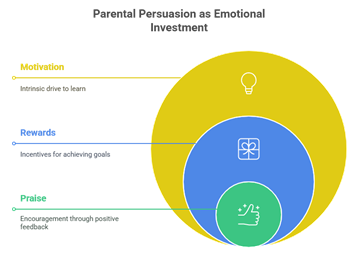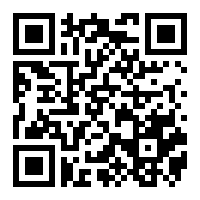Parental Emotional Reinforcement-Demands, and the Intrinsic Motivation of Santri in Qur’anic Memorization: A Study in Indonesian Islamic Boarding Schools
DOI:
https://doi.org/10.23917/ijolae.v7i3.11193Keywords:
character education, emotional reinforcement, learning outcomes, parent-child relationship, qur'anic memorization, religious education, spiritual educationAbstract
In Indonesia, early Qur'anic memorization is a culturally and spiritually significant practice, particularly within Islamic boarding schools (pesantren). Despite its importance, limited research has examined how parent-child dynamics influence children's motivation in this context. This study investigates the motivational experiences of children aged 6 to 12 engaged in Qur’anic memorization, with particular attention to the role of parental emotional reinforcement, directive expectations, and intrinsic spiritual aspirations. A qualitative, psycho-hermeneutic approach was employed, involving interviews with one kiai, 20 ustaz-ustazah, and 23 santri who had memorized 30 Juz of the Qur’an, complemented by observations of 540 students and analysis of their monthly memorization progress reports. Findings reveal three distinct motivational trajectories: (1) extrinsic motivation through parental emotional reinforcement (e.g., praise, rewards), (2) passive compliance under parental demands, and (3) intrinsic motivation grounded in the child's spiritual calling. While extrinsic motivation often initiates engagement, intrinsic motivation is crucial for sustaining long-term memorization commitment and internalizing religious values. This study enriches theoretical understanding of motivation in Islamic education by integrating Self-Determination Theory and hermeneutic analysis. It also offers practical implications for parents, educators, and policymakers seeking to foster supportive and autonomy-enhancing environments in pesantren settings. Further research is recommended to explore how sociocultural structures and pesantren pedagogies influence the development of religious motivation among young learners.
Downloads
References
Abubakar, B., Sanusi, S., Razali, R., Yeniningsih, T. K., & Mujiburrahman, M. (2023). Parenting Education in Islamic Families within the Framework of Family Resilience in Aceh, Indonesia. Samarah: Jurnal Hukum Keluarga Dan Hukum Islam, 7(2), 1121. https://doi.org/10.22373/sjhk.v7i2.17901
Asrial, A., Syahrial, S., Sabil, H., Kurniawan, D. A., Perdana, R., Nawahdani, A. M., ... & Nyirahabimana, P. (2023). Quantitative Analysis Of Elementary School Students' Curiosity and Web-Based Assessment Responses. Indonesian Journal on Learning and Advanced Education (IJOLAE), 107-119.
Bornstein, M. H., Putnick, D. L., Lansford, J. E., Al‐Hassan, S. M., Bacchini, D., Bombi, A. S., Chang, L., Deater‐Deckard, K., Di Giunta, L., Dodge, K. A., Malone, P. S., Oburu, P., Pastorelli, C., Skinner, A. T., Sorbring, E., Steinberg, L., Tapanya, S., Tirado, L. M. U., Zelli, A., & Alampay, L. P. (2017). ‘Mixed blessings’: Parental religiousness, parenting, and child adjustment in global perspective. Journal of Child Psychology and Psychiatry, 58(8), 880–892. https://doi.org/10.1111/jcpp.12705
Carbone, A., Pestell, C., Nevill, T., & Mancini, V. (2024). The Indirect Effects of Fathers’ Parenting Style and Parent Emotion Regulation on the Relationship Between Father Self-Efficacy and Children’s Mental Health Difficulties. International Journal of Environmental Research and Public Health, 22(1), 11. https://doi.org/10.3390/ijerph22010011
Creswell, J. W. (2018). Research Design: Qualitative, Quantitative, and Mixed Methods Approaches. SAGE Publications.
Deci, E. L., & Ryan, R. M. (2015). Self-Determination Theory. In International Encyclopedia of the Social & Behavioral Sciences (pp. 486–491). Elsevier. https://doi.org/10.1016/B978-0-08-097086-8.26036-4
Galily, Y. (2024). Interviewing. In Encyclopedia of Sport Management (pp. 519–520). Edward Elgar Publishing. https://doi.org/10.4337/9781035317189.ch303
Garcia, L. Ma. (2025). Ricœur’s Ethical Philosophy: Becoming Oneself as Another. Kritike: An Online Journal of Philosophy, 18(4), 28–35. https://doi.org/10.25138/18.4.pp
Guo, S. (2018). A model of religious involvement, family processes, self‐control, and juvenile delinquency in two‐parent families. Journal of Adolescence, 63(1), 175–190. https://doi.org/10.1016/j.adolescence.2017.12.015
Huang, L., Wu, W., & Yang, F. (2024). Parenting Style and Subjective Well-Being in Children and Youth: A Meta-Analysis. Psychological Reports. https://doi.org/10.1177/00332941241256883
Iswahyudi, M. S., Wulandari, R., Samsuddin, H., Sukowati, I., Nurhayati, S., Makrus, M., Amalia, M. M., Faizah, H., Febianingsih, N. P. E., & others. (2023). Buku Ajar Metodologi Penelitian. PT. Sonpedia Publishing Indonesia.
Juhana, E., & Nurhayati, S. (2023). Parents’ Strategies in Improving Childrens’ Ability to Memorize Al Qur’an. SPEKTRUM: Jurnal Pendidikan Luar Sekolah (PLS), 11(2), 292–296.
Jusubaidi, J., Lindgren, T., Mujahidin, A., & Rofiq, A. C. (2024). A Model of Transformative Religious Education: Teaching and Learning Islam in Pondok Modern Darussalam Gontor, Indonesia. Millah: Journal of Religious Studies, 171–212. https://doi.org/10.20885/millah.vol23.iss1.art6
Kearney, R. (2017). On Paul Ricoeur. Routledge. https://doi.org/10.4324/9781315247700
Khan, N. I. (2022). Case Study as a Method of Qualitative Research. In Research Anthology on Innovative Research Methodologies and Utilization Across Multiple Disciplines (pp. 452–472). IGI Global. https://doi.org/10.4018/978-1-6684-3881-7.ch023
Nightingale, A. J. (2020). Triangulation. In International Encyclopedia of Human Geography (pp. 477–480). Elsevier. https://doi.org/10.1016/B978-0-08-102295-5.10437-8
Nurhayati, S. (2021). Parental involvement in early childhood education for family empowerment in the digital age. Empowerment: Jurnal Ilmiah Program Studi Pendidikan Luar Sekolah, 10(1), 54–62. https://doi.org/10.22460/empowerment.v10i1p54-62.2185
Perbowosari, H., PF, K. A. P. D., & Oktarina, P. S. (2025). Predicting religious character: The role of parenting, spiritual intelligence, and intrinsic motivation. International Journal of Innovative Research and Scientific Studies, 8(3), 3410–3420. https://doi.org/10.53894/ijirss.v8i3.7251
Prayitno, H. J., Kusmanto, H., Nasucha, Y., Rahmawati, L. E., Jamaluddin, N., Samsuddin, S., & Ilma, A. A. (2019). The politeness comments on the Indonesian President Jokowi Instagram official account viewed from politico pragmatics and the character education orientation in the disruption era. Indonesian Journal on Learning and Advanced Education (IJOLAE), 52-71.
Quintão, C., Andrade, P., & Almeida, F. (2020). How to Improve the Validity and Reliability of a Case Study Approach? Journal of Interdisciplinary Studies in Education, 9(2), 273–284. https://doi.org/10.32674/jise.v9i2.2026
Rakhmah, R., Niron, M. D., & Jha, G. K. (2024). Beyond the Classroom: A Comprehensive Analysis of Teacher Personality Competence, Parenting Styles, and Their Joint Influence on the Character Formation in Junior High School Education. Indonesian Journal on Learning and Advanced Education (IJOLAE), 156-169.
Ricoeur, P. (1976). Interpretation theory: Discourse and the surplus of meaning. TCU press.
Ryan, R. M., & Deci, E. L. (2020). Intrinsic and extrinsic motivation from a self-determination theory perspective: Definitions, theory, practices, and future directions. Contemporary Educational Psychology, 61, 101860. https://doi.org/10.1016/j.cedpsych.2020.101860
Savary, J., & Goldsmith, K. (2020). Unobserved altruism: How self-signaling motivations and social benefits shape willingness to donate. Journal of Experimental Psychology: Applied, 26(3), 538–550. https://doi.org/10.1037/xap0000261
Sidorova, M. (2024). Paul Ricoeur’s Hermeneutics of Action: From Interpreter to Actor. Sotsiologicheskoe Obozrenie / Russian Sociological Review, 23(3), 201–226. https://doi.org/10.17323/1728-192x-2024-3-201-226
Suddick, K. M., Cross, V., Vuoskoski, P., Galvin, K. T., & Stew, G. (2020). The Work of Hermeneutic Phenomenology. International Journal of Qualitative Methods, 19. https://doi.org/10.1177/1609406920947600
Suryana, E., Supriadi, U., Fikri, M., Efriani, A., & Langputeh, S. (2024). Exploring Memorization Patterns in the Tahfidz and Tarjamah Qur’an Programs. Jurnal Pendidikan Islam, 10(2), 375–386. https://doi.org/10.15575/jpi.v10i2.29969
Susewind, M., & Walkowitz, G. (2020). Symbolic Moral Self-Completion – Social Recognition of Prosocial Behavior Reduces Subsequent Moral Striving. Frontiers in Psychology, 11. https://doi.org/10.3389/fpsyg.2020.560188
Syahbudin, A., Basir, Abd., Karim, A., & Barni, M. (2023). The Role of Parents in Family Education on Surah At-Tahrim (Study of Interpretation Maudhū’ī li Sūrah Wāhidah). Munaddhomah: Jurnal Manajemen Pendidikan Islam, 3(3), 272–283. https://doi.org/10.31538/munaddhomah.v3i3.285
Syaifulloh, M. K., Hanafi, M., Ardyanto, T. D., Wiyono, N., Budianto, P., & Jumiatmoko, J. (2022). Electroencephalography (EEG) Frontal Alpha Asymmetry Index as an Indicator of Children’s Emotions in the Three Quran Learning Methods: Visual, Auditory, and Memory. Iranian Journal of Psychiatry. https://doi.org/10.18502/ijps.v18i1.11417
Taufikin, T. (2021). Pesantren as the Three Centers of Education Perspective of Ki Hadjar Dewantara. Dinamika Ilmu, 21(1), 101–119.
Taufikin, T., Zamroni, Z., & Nurhayati, S. (2025). Advancing Islamic Education Through Total Quality Management: Insights from Tahfiz Qur’an Practices. Al-Tanzim: Jurnal Manajemen Pendidikan Islam, 9(2), Article 2. https://doi.org/10.33650/al-tanzim.v9i2.10706
Trovão, S. S. (2017). Parental Transmission of Religion and Citizenship among Migrant Muslim Families in Mozambique, Portugal, United Kingdom and Angola. Journal of Muslim Minority Affairs, 37(2), 129–146. https://doi.org/10.1080/13602004.2017.1345102
Zhang, Y., Miller, M., & Halgunseth, L. C. (2023). Parenting styles and children’s development: A review of the literature. In Encyclopedia of Child and Adolescent Health (pp. 609–619). Elsevier. https://doi.org/10.1016/B978-0-12-818872-9.00082-0
Zulhannan, Z., & Musyarrofah, U. (2024). Education System and Network of Quran Memorization Islamic Boarding Schools in Kudus, Surakarta, and Bogor. Millah: Journal of Religious Studies, 301–330. https://doi.org/10.20885/millah.vol23.iss1.art10

Submitted
Accepted
Published
Issue
Section
License
Copyright (c) 2025 Taufikin Taufikin, Sri Nurhayati, Jahangeer Majeed, Muhammad Afzal, Badawi, Mabrouk Chibani Mansouri, Gulnaz Fatma

This work is licensed under a Creative Commons Attribution 4.0 International License.












